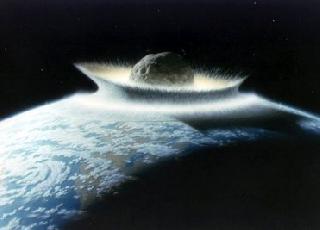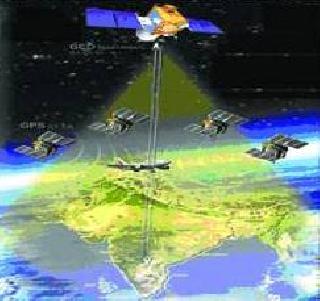
A file photo by NASA.
LONDON (PTI): Scientists are planning a NASA mission that will land on an asteroid which has a slim chance of hitting the Earth in 2182, according to a news report.
Astronomers have already warned that a giant asteroid, identified as 1999 RQ36, might hit the Earth in 2182 resulting in an explosion equivalent to hundreds of nuclear bombs detonating at once.
In a bid to avoid such a catastrophe, some scientists are already making plans to send a mission to 1999 RQ36 to collect a sample of it to help better predict its future trajectory.
"If it gets the go-ahead from a cash-strapped NASA, the spacecraft would blast off in 2106 with the aim of mapping and collecting rock samples from the asteroid," the Daily Mail reported.
"The mission, called OSIRIS-Rex (Origins Spectral Interpretation Resource Identification Security Regolith Explorer) is one of two finalists in competition for funding as part of NASA's New Frontiers programme," the report said.
The other contender for funding is a mission to land on Venus. The winner will be announced next year, it said.
NASA has officially classified RQ36 as a "potentially hazardous asteroid" as it passes within about 280,000 miles of Earth.
RQ36 was originally chosen because it is believed to contain material that has remain unchanged since the beginning of the solar system. Its orbit, which brings it close to Earth, makes it easier to reach.
Michael Drake, who would lead the OSIRIS-Rex team if it was chosen, said: "Being one of the easiest targets to get to coincidently mean that it also can easily hit us, too.
"When we were putting this mission proposal together, however, we really didn't connect those dots."
According to the report, the OSIRIS-Rex mission would bring back samples of the asteroid -- much like the Japanese Hayabusa mission earlier this year -- which would give boffins crucial information about its make-up.
This sort of data would be vital when deciding what method we should use to try and alter its orbit, if necessary.
Most models of asteroid orbits do not include what is known as the Yarkovsky effect.
Even though the asteroid's orbit is well-known thanks to 290 different observations by telescopes and 13 radar measurements there is uncertainty about its path because of the so-called Yarkovsky effect.
This effect, first discovered in 2003 and named after a Russian engineer, is produced by the way an asteroid absorbs energy from the sun and re-radiates it into space as heat.
This can subtly alter the asteroid's flight path.
 Previous Article
Previous Article Next Article
Next Article













The Indian Air Force, in its flight trials evaluation report submitted before the Defence Ministry l..
view articleAn insight into the Medium Multi-Role Combat Aircraft competition...
view articleSky enthusiasts can now spot the International Space Station (ISS) commanded by Indian-American astr..
view article